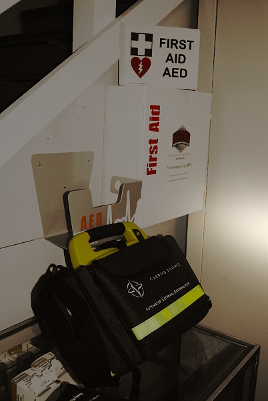“The real preventative power lies with real changes to your lifestyle – which can reduce the risk for heart disease by as much as 80 percent.”
--American Heart Association
If you have yet to see our previous article on heart disease and how it is killing millions every year, read it here. I wanted to close out February with an additional article covering ways to reduce your risk as well as provide assistance to those who have previously experienced heart issues.
Now that we know how serious it is to be preventative about heart disease, and why we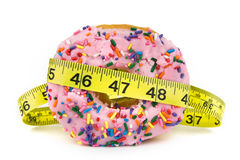 should stay vigilant about avoid certain things if we have previous issues, did you know that there are certain foods & food ingredients that influence heart behaviors? For example, hydrogenated oils are believed to be not good for the heart. These are generally found in chips, crackers, store bought pastries (things like doughnuts, muffins, etc.), and other baked foods. These hydrogenated oils increase cholesterol in the body which in turn, increases risk of heart attack. If you have already experienced a heart attack, these would be foods to generally avoid in order to remain healthy in the long term.
should stay vigilant about avoid certain things if we have previous issues, did you know that there are certain foods & food ingredients that influence heart behaviors? For example, hydrogenated oils are believed to be not good for the heart. These are generally found in chips, crackers, store bought pastries (things like doughnuts, muffins, etc.), and other baked foods. These hydrogenated oils increase cholesterol in the body which in turn, increases risk of heart attack. If you have already experienced a heart attack, these would be foods to generally avoid in order to remain healthy in the long term.
Meat lovers, bad news. Certain sausages, pastrami, hot dogs, and even smoked turkey can be harmful to heart patients. The reason is the nitrates which can damage blood vessels in the body. These can cause hardening and narrowing of the arteries, and this is what causes heart strokes and serious heart problems.
The jury is still (in my opinion) on diet sodas. Some studies will claim that they may increase heart attack risk, and others claim it does not. To be safe, you may choose to drink fresh, squeezed juice, lemon water, (iced) tea or certain health drinks (learn to read labels!).
Red meat has many health benefits, however due to its saturated fat content, can be something to limit for those who have already undergone heart treatment. Studies show that women especially are more prone to heart attacks due to a high consumption of red meats. Think about instead filling the gap with more white meat or fish. Beans, legumes, non-fat dairy, tofu, and nuts are other good choices to help keep you sated in lieu of too much red meat.
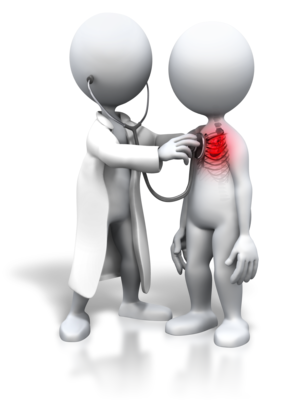
Also, pre-packed foods such as canned spaghetti, soups, and frozen dinners can contain high amounts of sodium used to enhance flavor and taste. This are things a person with an unhealthy heart should really never eat. Too much sodium damages the blood vessels and may increase the chance of heart attacks. Replace eating these items with homemade soups, and of course fresh vegetables and fruits are a great alternative.
It should be stated that as individuals, we may handle these things differently from one another. What works for one, may not another, and vice versa. This makes it very important to use this information as a guideline as opposed to written rule, and it is recommended you get in touch with a physician, health professional, or your healthcare provider to suggest an appropriate diet.
In addition to certain foods, there are a number of ways to lower the risk of a heart attack or a stroke. Those individuals with high blood pressure, high cholesterol, atrial fibrillation, or diabetes are at an increased chance for heart attack or stroke. These are some ways to lower that risk.
The first thing is probably the most obvious, exercise! Simply doing a moderate and reasonable each day is a helpful, preventative measure and can lower risk by 30%-50%! By moderate amount, think 30 minutes a day, 5 days a week. Those last two days? Strength train! It may sound difficult, but you only require 30 minutes a day. Two 15 minute walks? One light half hour jog? A few simple sets on a pair of dumbells? All within the realm of reality in a given day and will help with not only preventative heart measures, but reasonable weight loss as well. In fact, if overweight or obese, just losing 5-10% of your weight improves cholesterol levels and lowers blood pressure and blood sugar levels.
130,000 Americans die every year because they don't take their heart medicine the way the doctor told them.
Take you heart medicine the way it prescribed. If you or an individual you know need help, determine what keeps you (or them) from taking it such as side effects, cost, or simply forgetfulness, and ask your doctor for help.
5 Things You Need to Know About Heart Disease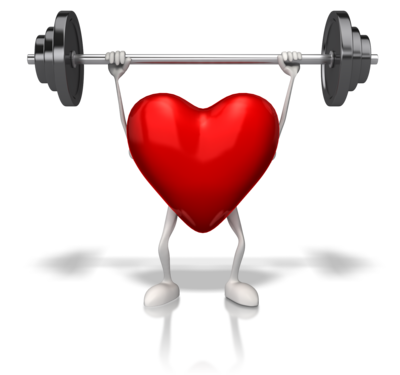
- Following a good, healthy diet can lower heart disease risk by 25%
- Moderate alcohol consumption helps the heart.
- Eating chocolate more than once a week lowers the risk of heart disease by almost 40% and of diabetes or stroke by about 30%
- Smoking drastically increases your risk of heart attack and stroke (even secondhand can hurt*)
- Getting your teeth cleaned every 6 months may lower your risk of heart attack by 24% and of stroke by 13%**
*: Every year about 46,000 people die from heart disease related to their exposure to 2nd hand smoke.
**: Dentists may be able to spot signs of heart disease (such as swollen gums or loose teeth) before you or your doctors notice other symptoms. This allows for faster treatment.
Remember, unusual symptoms such as shortness of breath, changes in heart rhythm, or exhaustion may be signs that you need to talk to your doctor. Don't just hope they just go away, there is a lot a doctor can do for heart problems, but only once they know!
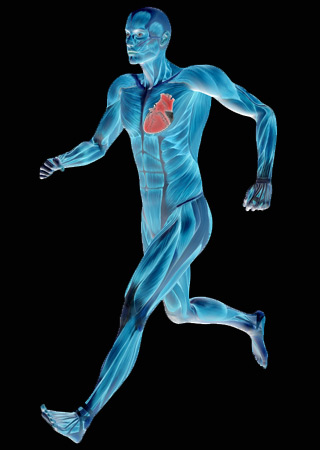 How to Recognize a Medical Emergency
How to Recognize a Medical Emergency
1.) When brain is affected, should be treated as medical emergency.
2.) Weakness, numbness, vision loss on one or both sides of the body, dizziness, confusion, trouble speaking, severe headache, loss of consciousness (fainting/passing out), or seizures
3.) Breathing problems (not after a run; but with "no reason")
4.) Heart problems (some feel like indigestion, others are the worst pain ever)
5.) Be sure to call 911 or go to the emergency room (especially if nothing makes it better; rest, position, or movement). Don't hesistate to call!
Should I Take Aspirin During a Heart Attack?
Aspirin is blood thinner and also helps prevent blood clots from forming. This can be helpful during a heart attack. In fact, research shows that getting an aspirin early in the treatment of a heart attack can significantly improve your chances of survival. It’s important, however, to first call 911, as aspirin won’t treat your heart attack by itself.
NOTE: Taking aspirin isn’t advised during a stroke. Because most strokes are caused by clots (or in some cases, ruptured blood vessels) taking aspirin can make bleeding strokes more severe!
CPR: Are You Prepared?
-
Research shows 80% of cardiac arrests happen in the home. CPR is
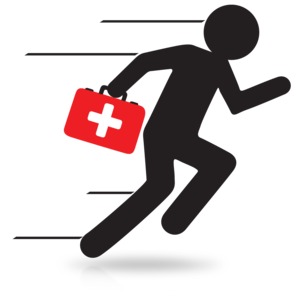 necessary (AED is great too!)
necessary (AED is great too!) - For those untrained in CPR, you can use Hands-Only CPR.
- If an adult collapses that you can't wake, call 911 and start chest compressions.
- Heel of hand in center of chest, place other hand on top, interlace fingers, push hard & fast
- Use AED if available
- Remember CPR is most successful when done asap, first determine if necessary.
- Only when person is unresponsive and not breathing or not breathing normally.
Taking a CPR class could help you save someone's life. If you are interested in any combination of first aid, CPR, or AED training, consider taking a safety training course from Safety Training Services.
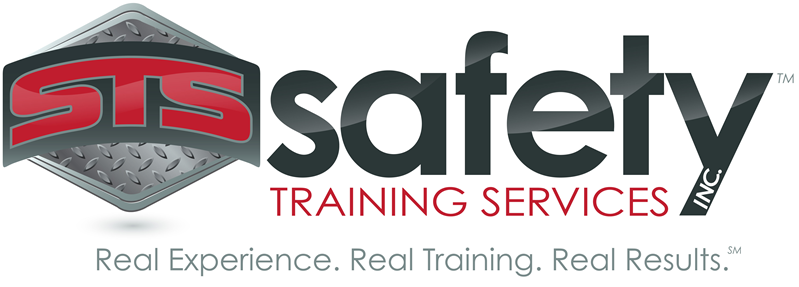
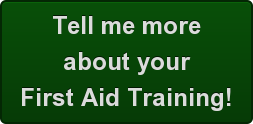
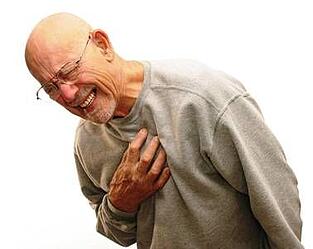 cardiac arrest, as well as decipher the differences between them. As I stated earlier, in addition to bringing up awareness of the two, we will also discuss the symptoms, signs, and how to help others during an incident involving these heart problems.
cardiac arrest, as well as decipher the differences between them. As I stated earlier, in addition to bringing up awareness of the two, we will also discuss the symptoms, signs, and how to help others during an incident involving these heart problems.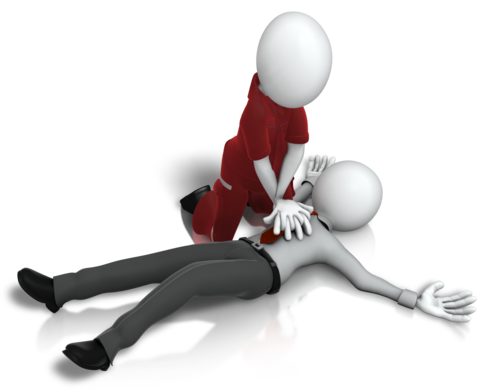 If you are in a situation in which someone around you is experiencing what you believe to be a heart attack, you have about five minutes to call 911 (or other local emergency response number). This is because every minute is important for a heart attack victim. Having emergency services show with an ambulance is one of the best ways to handle the situation, the emergency responders and can give treatment as soon as they arrive, and treatment can continue in the ambulance rather than if you drove them to the hospital yourself.
If you are in a situation in which someone around you is experiencing what you believe to be a heart attack, you have about five minutes to call 911 (or other local emergency response number). This is because every minute is important for a heart attack victim. Having emergency services show with an ambulance is one of the best ways to handle the situation, the emergency responders and can give treatment as soon as they arrive, and treatment can continue in the ambulance rather than if you drove them to the hospital yourself.